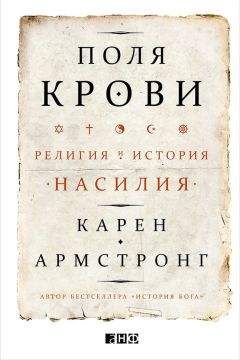Флп. 2:3–5
Флп. 2:6–11
Флп. 2:3–4
Ин. 1
1 Ин. 7:42–47
1 Ин. 2:18–19
Тацит, История, I 11; Marshall, ‘Collateral Damage’, pp. 37–38
Firestone, Holy War, pp. 46–47.
Michael S. Berger, ‘Taming the Beast: Rabbinic Pacification of Second-Century Jewish Nationalism’, in James K. Wellman, Jr., ed., Belief and Bloodshed: Religion and Violence across Time and Tradition (Lanham, Md., 2007), pp. 54–55
Иерусалимский Талмуд (ИТ), Таанит 4.5; Эйха Рабба, 2.4; см.: C. G. Montefiore and H. Loewe, eds, A Rabbinic Anthology (New York, 1974)
Дион Кассий, История, LXIX 12; Mireille Hadas-Lebel, Jerusalem against Rome, trans. Robyn Freshat (Leuven, 2006), pp. 398–409
Berger, ‘Taming the Beast’, pp. 50–52
Вавилонский Талмуд (ВТ), Берахот, 58а; Шаббат, 34а; Бава Батра, 75а; Санхедрин, 100а; см.: Montefiore and Loewe, Rabbinic Anthology; Firestone, Holy War, p. 73
Firestone, Holy War, pp. 52–61
Berger, ‘Taming the Beast’, p. 48
Авот де рабби Натан, B. 31; см.: Robert Eisen, The Peace and Violence of Judaism: From the Bible to Modern Zionism (Oxford, 2011), p. 86. [Перевод Н. Переферковича. Здесь и далее цит. по: Талмуд. Мишна и Тосефта. Том четвертый. – СПб.: Издательство Сойкина, 1903. – Прим. пер.]
ВТ Песахим, 118а; см.: ibid.
Eisen, Peace and Violence, p. 86; Hadas-Lebel, Jerusalem against Rome, pp. 265–95
Мехильта де рабби Ишмаэль, 13; ВТ Авода Зара, 18а; см.: Montefiore and Loewe, Rabbinic Anthology.
ВТ Шаббат, 336б; ВТ Берахот 58а; см.: Montefiore and Loewe, Rabbinic Anthology
Wilfred Cantwell Smith, What is Scripture? A Comparative Approach (London, 1993), p. 290; Gerald L. Bruns, ‘Midrash and Allegory: The Beginnings of Scriptural Interpretation’, in Robert Alter and Frank Kermode, eds, A Literary Guide to the Bible (London, 1987), pp. 629–30; Nahum S. Glatzer, ‘The Concept of Peace in Classical Judaism’, Essays on Jewish Thought (University, Ala., 1978), pp. 37–38; Eisen, Peace and Violence, p. 90
Michael Fishbane, Garments of Torah: Essays in Biblical Hermeneutics (Bloomington and Indianapolis, 1989), pp. 22–32
ВТ Шаббат, 63а; ВТ Санхедрин, 82а; ВТ Шаббат, 133б; см.: Eisen, Peace and Violence, pp. 88–89; Reuven Kimelman, ‘Non-violence in the Talmud’, Judaism, 17 (1968)
Авот де рабби Натан, A. 23 in Eisen, Peace and Violence, p. 88
Мишна (М), Авот, 4:1; см.: Montefiore and Loewe, Rabbinic Anthology
Eisen, Peace and Violence, p. 89
ВТ Берахот, 4а; Мегилла, 3а; см.: Montefiore and Loewe, Rabbinic Anthology
ВТ Мегилла, 10б; см.: Montefiore and Loewe, Rabbinic Anthology. Ср. Исх. 14
М Сота, 8:7; М. Йадайим, 4:4; Тосефта, Киддушим, 5: 4; см.: Firestone, Holy War, p. 74.
ИТ Сота, 8.1 in Montefiore and Loewe, Rabbinic Anthology
Песн. 2:7; 3:5; 8:4; ВТ Кетубот 110б-11а; Шир га-Ширим Рабба, 2:7; см.: ibid.
Firestone, Holy War, pp. 74–75
Aviezer Ravitsky, Messianism, Zionism and Jewish Religious Radicalism, trans. Michael Swirsky and Jonathan Chapman (Chicago, 1997), pp. 211–34
Peter Brown, The World of Late Antiquity, AD 150–750 (London, 1989), pp. 20–24; Brown, The Rise of Western Christendom: Triumph and Diversity, AD 200–1000 (Oxford and Malden, Mass., 1996), pp. 18–19
Brown, World of Late Antiquity, pp. 24–27
Peter Brown, The Making of Late Antiquity (Cambridge, Mass., and London, 1978), p. 48; Rise of Western Christendom, pp. 19–20.
Откр. 3:21; Тацит, Анналы, XV 44. Однако Тацит писал через несколько десятилетий после данного события, и едва ли христиане к тому моменту понимались как отдельная группа. Ср.: Candida R. Moss, The Myth of Persecution: How Early Christians Invented a Story of Martyrdom (New York, 2013), pp. 138–39
Тертуллиан, Апология, 20; см.: Moss, Myth of Persecution, p. 128. [Перевод Н. Щеглова. Цит. по: Творения Тертуллиана. Часть 1. Апологетические сочинения Тертуллиана. – Киев: Типография Акционерного Общества «Петр Барский», 1910. – Прим. пер.]
W. H. C. Frend, Martyrdom and Persecution in the Early Church: A Study of the Conflict from the Maccabees to Donatus (Oxford, 1965), p. 331
Jonathan Z. Smith, ‘The Temple and the Magician’, in Map is Not Territory: Studies in the History of Religions (Chicago and London, 1978), p. 187; Peter Brown, ‘The Rise of the Holy Man in Late Antiquity’, Journal of Roman Studies LXI (1971)
Rives, Religion in the Roman Empire, pp. 207–08
Ibid., pp. 68, 82
Moss, Myth of Persecution, pp. 127–62; G. E. M. De Ste Croix, ‘Why Were the Early Christians Persecuted? ’, in Michael Whitby and Joseph Street, eds, Martyrdom and Orthodoxy (Oxford, 2006)
James B. Rives, ‘The Decree of Decius and the Religion of Empire’, Journal of Roman Studies, 89 (1999); Robin Lane Fox, Pagans and Christians (New York, 1987), pp. 455–56
ВТ Бава Мециа, 59б; см.: Montefiore and Loewe, Rabbinic Anthology
Collatio Legum Romanarum et Mosaicarum 15.3; см.: Brown, Rise of Western Christendom, p. 22
Ramsey MacMullen, The Second Church: Popular Christianity AD 200–400. Христиане традиционно молились в частных домах. Такие храмы, как базилика, оскорбившая Диоклетиана, были лишь недавним новшеством
Moss, Myth of Persecution, pp. 154–58.
Candida R. Moss, The Other Christs: Imitating Jesus in Ancient Christian Ideologies of Martyrdom (Oxford, 2010)
Виктриций, Восхваление святых, 10.452 B; см.: Peter Brown, The Cult of the Saints: Its Rise and Function in Latin Christianity (Chicago, 1981), p. 79
Декрет Геласия; см.: ibid.
‘The Martyrs of Lyons’ 1.4, in H. Musurillo, trans., The Acts of the Christian Martyrs (Oxford, 1972).
Ibid., 9, in Peter Dronke, Women Writers of the Middle Ages: A Critical Study of Texts from Perpetua (†203) to Marguerite Poretz (†1310) (Cambridge, UK, 1984), p. 4
Страсти Перпетуи и Фелицитаты, 10; см.: Dronke, Women Writers, p. 4
Frend, Martyrdom and Persecution in the Early Church, p. 15
Brown, World of Late Antiquity, pp. 82–84
Ориген, Против Цельса, 2:30; см.: trans. Henry Chadwick (Cambridge, 1980). [Перевод Л. Писарева. Цит. по: Ориген. Против Цельса. – М.: Учебно-информационный экуменический центр ап. Павла, 1996. – Прим. пер.]
Киприан, Послания, 40:1; 48:4.
Ibid., 30.2; Brown, Making of Late Antiquity, pp. 79–80
Лактанций, Божественные установления; см.: William Fletcher, trans., Lactantius: Works (Edinburgh, 1971), p. 366
Ibid., p. 427
Ibid., p. 328
Garth Fowden, Empire to Commonwealth: Consequences of Monotheism in Late Antiquity (Princeton, NJ, 1993), pp. 13–16, 34
Евсевий, Слово василевсу Константину по случаю тридцатилетия его царствования, 5. см.: перевод в: H. A. Drake, In Praise of Constantine: A Historical Study and New Translation of Eusebius’ Tricennial Orations (Berkeley and Los Angeles, 1976), p. 89. [Перевод Санкт-Петербургской Духовной Академии. Цит. по: Евсевий Памфил. Жизнь блаженного василевса Константина. – 2-е изд. – М.: Labarum, 1998. – Прим. пер.]
Aziz Al-Azmeh, Muslim Kingship: Power and the Sacred in Muslim, Christian and Pagan Polities (London and New York, 1997), pp. 27–33
Michael Gaddis, There is No Crime for Those Who Have Christ: Religious Violence in the Christian Roman Empire (Berkeley, Los Angeles and London, 2005), p. 88.
Евсевий, Жизнь Константина, 1.5, 24; 2:19. см.: перевод в: Cameron Averil and Stuart G. Hall, Eusebius’s Life of Constantine: Introduction, Translation and Commentary (Oxford, 1999) [Перевод Санкт-Петербургской Духовной Академии. Здесь и далее цит. по: Евсевий Памфил. Жизнь блаженного василевса Константина. – 2-е изд. – М.: Labarum, 1998. – Прим. пер.]
Ibid., 4: 8–13; Fowden, Empire to Commonwealth, pp. 93–94
Al-Azmeh, Muslim Kingship, pp. 43–46
Мф. 28:19
John Haldon, Warfare, State and Society in the Byzantine World, 565–1204 (London and New York, 2005), pp. 16–19
Fowden, Empire to Commonwealth, pp. 93–94; Gaddis, There is No Crime, pp. 62–63
Евсевий, Жизнь Константина, 4.61.
Евсевий, Жизнь Константина, 4.62. Gaddis, There is No Crime, pp. 63–64
Gaddis, There is No Crime, pp. 51–59




